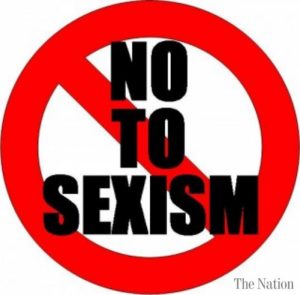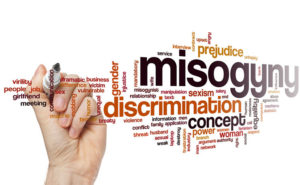By: Robert Avsec, Executive Fire Officer
This is the title of a recent post from my fire service colleague and attorney, Curt Varone, on his blog, Fire Law: Fairfax County’s Highest Female Officer Resigns From Women’s Program Officer Position
WOW! There’s no other word that even comes close to describing my thoughts after reading Chief Stanley’s letter  of resignation. After the suicide of Firefighter/Paramedic Nicole Mittendorf (caused by cyber-bullying from her male co-workers) who worked for the same department, one would have thought that Fairfax County Fire and Rescue would have done a better job of working to “right the ship”. Unfortunately, it seems that the leadership just keeps adding more water to a sinking vessel.
of resignation. After the suicide of Firefighter/Paramedic Nicole Mittendorf (caused by cyber-bullying from her male co-workers) who worked for the same department, one would have thought that Fairfax County Fire and Rescue would have done a better job of working to “right the ship”. Unfortunately, it seems that the leadership just keeps adding more water to a sinking vessel.
In a May 2016 post in this space, The Coming “Tsunami”: Sexual Harassment Litigation, I wrote:
The recent suicide of Firefighter/Paramedic Nicole Mittendorff has given a name and a face to this “blight” on the fire service. Like Amber Alerts (Child abductions), Megan’s Law, and Ryan White (AIDS awareness), I believe that FF/P Mittendorff’s death—caused in no small measure by cyber-bullying from her peers—will come to be known as the “tipping point” in our fight to eradicate harassment and violence against women in the fire service.
So much for those sentiments. Here we are in early 2018 and in some departments it seems like they’re still “digging the hole” and not figuring how to get out of the hole.
This sentence from Chief Stanley’s letter, in particular, caught my attention: “Most of the men in this Department are amazing people who have grown tired of being compared to the few outliers who create the toxic environment, and they too, want leadership to address the negative behaviors straight on.”
My question is: Where are these amazing people? Women cannot solve these problems in the fire service because women didn’t create the problems. Only when members of the dominant group within the organization (men) start standing up to injustice and helping to “clean house” will these problems become a thing of the past.
Men, predominantly white men, created the culture, norms, and policies for most fire departments–which is why I refer to them as the dominant group. Therefore, only they can make the necessary changes.
What can you do?
First a couple of pertinent definitions (from www.dictionary.com):
Misogyny: (noun) 1. hatred, dislike, or mistrust of women, or prejudice against women.
Sexism: (noun) 1. attitudes or behavior based on traditional stereotypes of gender roles;
2. discrimination or devaluation based on a person’s sex or gender, as in restricted job opportunities, especially such discrimination directed against women.
These two definitions have significant importance for fire department leaders. If you’re not actively rooting out  misogynistic or sexist behaviors in your department, you’re not doing your job and you should be replaced. As should any of your subordinates who are found guilty of misogynistic or sexist behaviors.
misogynistic or sexist behaviors in your department, you’re not doing your job and you should be replaced. As should any of your subordinates who are found guilty of misogynistic or sexist behaviors.
See, here’s the problem. Complaints get filed, investigations are conducted, and careers put in jeopardy. But it’s the careers of the victims, not the perpetrators. Read Chief Stanley’s letter again and note how many times that scenario played out. In some cases, the perpetrator even received a promotion (Great message to the rank and file, right?).
I’m a 60-year-old white male and retired battalion chief, so I’m comfortable saying these things because they need to be said by guys like me and the younger generation in the fire service. The “funny thing” is that the millennials are being touted as the least racist and sexist generation in our country’s history. But without sound leadership, they will be imprinted with the sexist and misogynistic attitudes that are still rampant in too many fire departments.
But we need more than talk, we need actions. Actions like:

Available for purchase as PDF file or in Kindle format. Visit https://www.fireemsleaderpro.org/ebooks-for-fire-ems-leaders/ to make your secure on-line purchase.
Speaking up when you are present when another male in your department–regardless of their rank–is treating or speaking to another member, especially a woman, in a disrespectful or demeaning way. It’s pretty easy if you put yourself in the other person’s shoes: Would I tolerate that behavior towards me?
Not tolerating hiring panels or promotional panels that don’t include members of the non-dominant group in the department.
For more thoughts and actions required by members of a department’s dominant group, check out my post from FireRescue1.com, 7 steps to an inclusive fire department culture.
 Fire & EMS Leader Pro The job of old firefighters is to teach young firefighters how to become old firefighters!
Fire & EMS Leader Pro The job of old firefighters is to teach young firefighters how to become old firefighters!